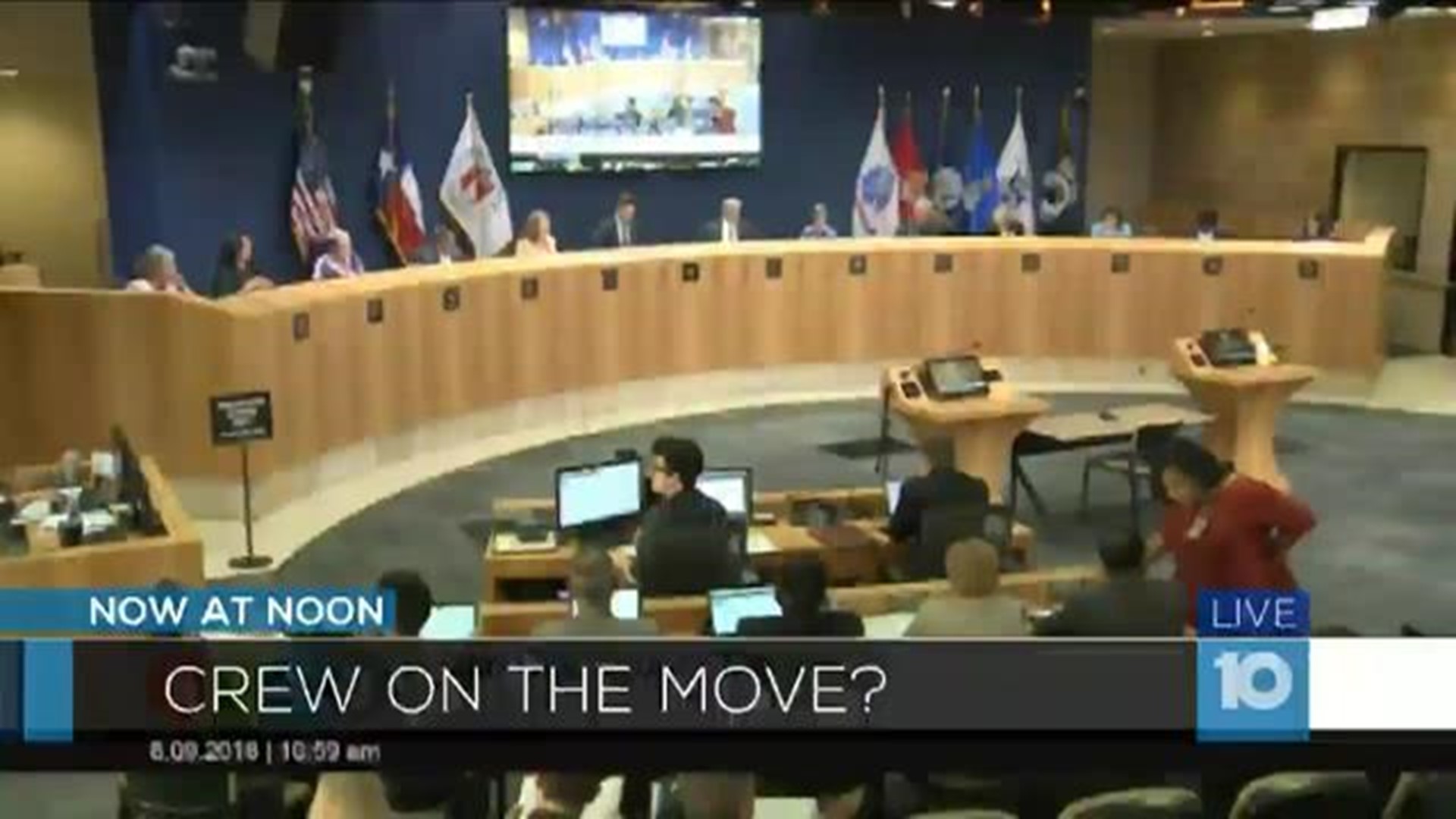AUSTIN, Texas — Texas’ thriving capital city may finally become a major league sports town. It will just take moving a bedrock franchise of Major League Soccer out of its home turf to do it.
Anthony Precourt, owner of the Columbus Crew, has been pushing for months to move his team to Austin, the largest city in the country without a major professional sports franchise.
While the league front office has supported Precourt’s desire to look around for a new city, picking up and relocating from Ohio to uber-hip Austin hasn’t been easy. It hasn’t been a slam-dunk deal in Austin and the state of Ohio is suing to block the move. Fan groups in Columbus have rallied to try to save their team, the 2008 MLS champion which was one of league’s founding clubs when it started in 1996.
The Austin City Council will vote Thursday on whether to make land available and authorize negotiations for a new $200 million, 20,000-seat privately financed stadium for the Crew. Precourt’s original hopes for a picturesque riverfront location downtown were quickly scuttled, but plans have shifted to build near a fast-growing business, shopping and housing development.
Other Austin developers are also interested in the site. Several City Council members have questioned whether the stadium is the best use of the land and the vote on the stadium plan is expected to be close.
If the stadium plan is approved, the Crew will likely chart a course to become the third MLS franchise in Texas by 2019, joining Houston and Dallas. Where the Crew would play until the stadium is built is yet to be determined.
Precourt has been eyeing Austin since he bought the team in 2013. His purchase agreement included a promise to keep the Crew in Columbus for at least 10 years, but it also had a clause that would let him move to Austin. And before Precourt announced his intention to move, MLS had trademarked Austin FC and Austin Athletic as possible names for a franchise even though the city had not applied for expansion.
Major League Soccer did not immediately respond to a request for comment.
Precourt noted Austin’s “growing presence as an international city, combined with its strong multicultural foundation” when he first announced plans to explore a move in October 2017. “MLS in Austin could be an ideal fit.”
The Austin metropolitan area is just over 2 million. The sports scene is dominated by the University of Texas Longhorns, but the city also hosts Formula One and MotoGP racing every year. Its economy centers on state government, the university and the city’s surging role as a major technology hub featuring companies like Dell, Samsung and Apple. Facebook and Google also have offices here and there’s a chance Amazon’s coveted HQ2 could be coming as well.
Mayor Steve Adler has said soccer would be a “huge success” and a perfect fit for his city, which ranked among the top television markets nationally for watching the World Cup.
“Soccer would be important for our community because it would bring our city together,” Adler said. “It is also a sport that doesn’t require a stadium with 70,000 people.”
If the council approves the stadium plan, “the soccer team will come,” Adler said.
Precourt has complained that Columbus has a lack of corporate sponsors and said the Crew’s current stadium, which opened in 1999 as the first soccer-specific stadium in the U.S., is showing age and needs to be replaced.
MLS Commissioner Don Garber has said the league is reluctant to see one of the original franchises move, but has also backed Precourt’s desire to look for a new home. Deputy MLS Commissioner Mark Abbott has visited with a partnership in Columbus that is interested in buying the team to keep it there.
Columbus isn’t giving up the team without a fight . The state lawsuit to block the move cites an Ohio law that owners of teams that use tax-supported facilities and accept state financial assistance must give at least six months’ notice and allow local investors the chance to buy the team. The law was enacted after the NFL’s Cleveland Browns moved to Baltimore in 1996.
A group of passionate Crew fans don’t want to lose their club. Save the Crew has been collecting pledges from fans to attend games next season, has appealed for a new ownership group to step in and even offered its own renderings for a new stadium in Columbus.
“The Crew is tremendously important” to Columbus, said David Miller, Save the Crew communications director. “We’re the original team in MLS. This team is a representation of history.”

